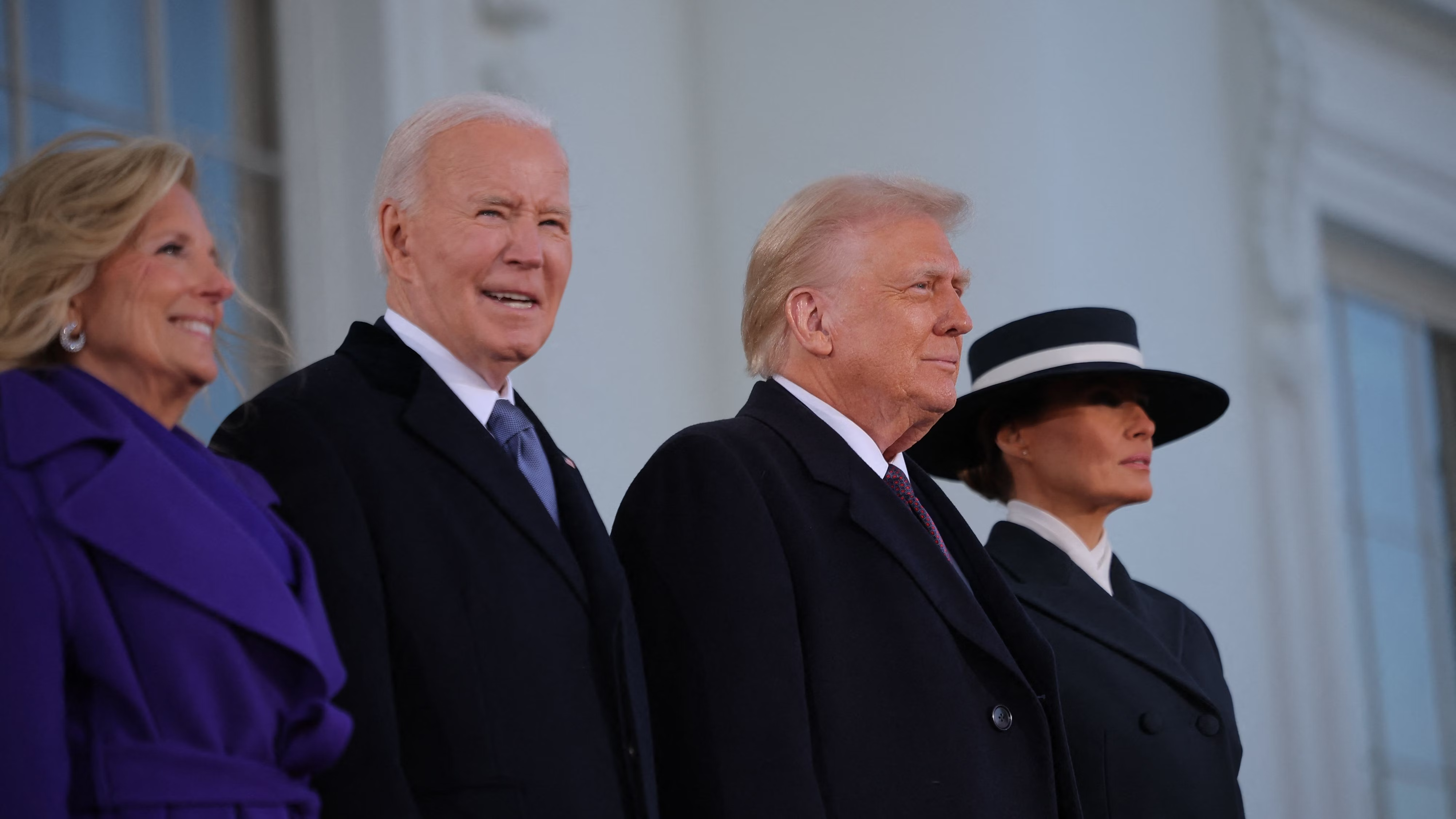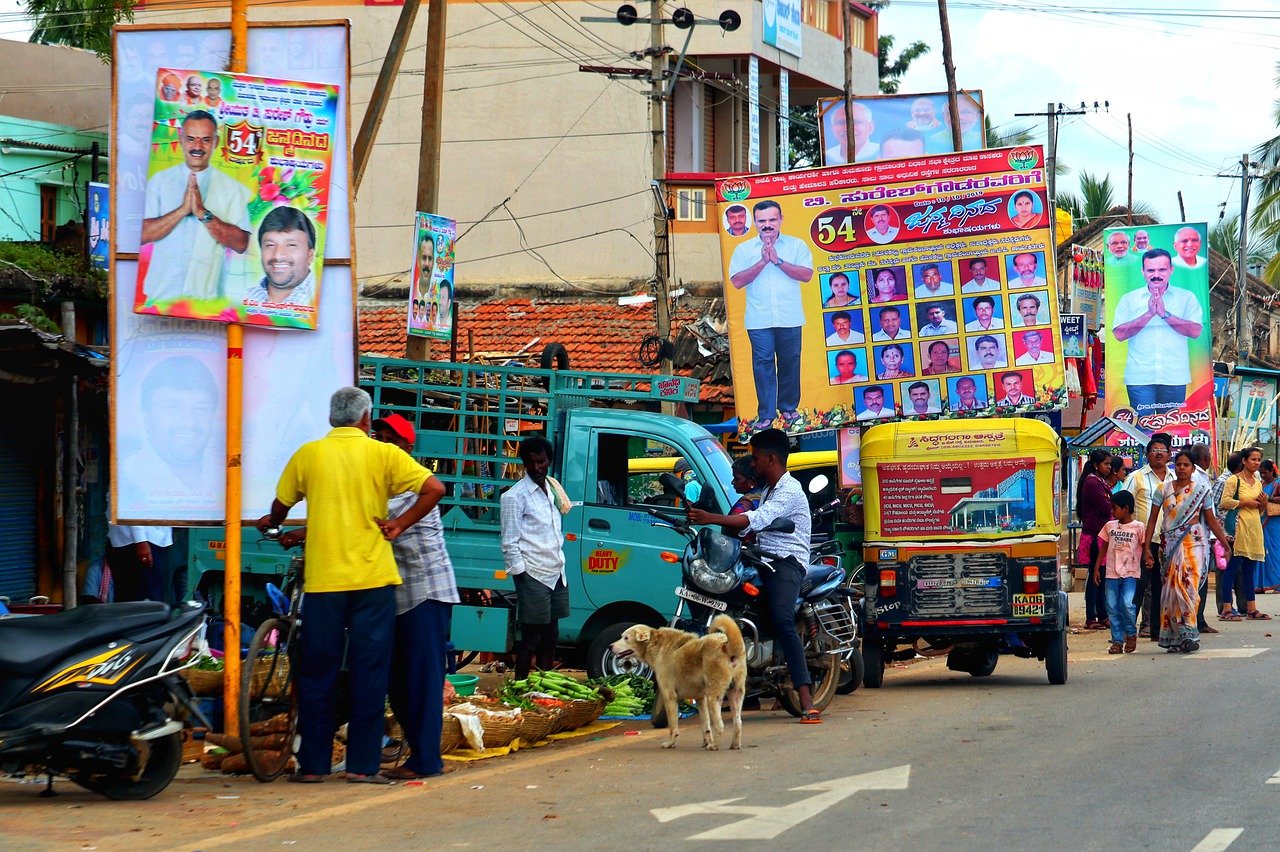The older generations dominate the political system of a world which is demographically dominated by the youth. This post by the Centre for Youth Policy tells you why.
Donald Trump is set to be the oldest United States President in history. The man he replaced- Joe Biden was also the oldest president in history. The two most populous countries in the world, India and China are led by men who are turning 72 and 75 this year. The average person in the world today is governed by someone who is four decades older than them. This has led to a situation where most countries in the world are a form of Gerontocracy. A gerontocracy is a system of government wherein the adult population is led by someone who is significantly older than they are. The question then arises- how does a world demographically dominated by the youth get politically dominated by those who are significantly older?
The answer is simple- Young people are isolated from our political systems. Older generations generally dismiss these concerns by saying that young people are apathetic to the political system in which they live because they are victims of lethargy and indifference. However, the youth today are significantly better educated, better informed, better connected and have bigger issues that impact them on a day to day basis than the generations that preceded them. Nonetheless, it is true that young people vote in significantly smaller numbers than older people worldwid. In a 2018 OECD report it was provided that people aged 18-24 years old voting at a rate which is twelve percent lower than those aged between 25-50, with gaps in countries such as Lithuania, Portugal and Slovakia extending beyond thirty percentage points. In the United States too, voter turnout for those below the age of 30 was twenty percent lower than those above the age of sixty. Finally, in India the youth voter turnout has been eroding since the 60s while the youth demographic booms. This manifests into a situation where young people don’t vote for their leaders and it follows that their voices are not heeded by politicians who will priorities their voter’s interests.
The aforementioned issue has large scale implications. A major portion of the population are severely underrepresented politically and it follows that their interests are not prioritised. Harvard University professor Pippa Norris argues in her work that lower youth voter turnouts makes for backwards policies that favour older voters leading to issues such as unemployment, education, climate policy and skewed public spending not coming to the forefront. The political domination of the young by the old is a systemic issue which politicians and democratic leaders refuse to solve. The youth are hence isolated from political decision, processes and actions. The issues embedded in the political system which have caused the creation of gerontocracy on a global level are varied.
1. Disillusionment of Youth from Politics
Perhaps the most severe issue leading to the political isolation of the youth is that in the 21st century most young people have lost faith in their respective political systems and it's leaders. In fact the issue is far more severe, young people internationally have began to lose faith in democratic systems altogether. According to the Open Society Barometer Survey released in 2023, over a third of young people internationally were supportive of strong leaders who do away with legislatures and elections. In the United Kingdom, the Duke of Edinburgh released a survey which stated that although young people are politically engaged but over 61% of them distrust politicians and hence, seeing voting as a useless act.
2. Gatekeeping by Political Parties
The backing of political parties is essential in almost all modern democratic steps, this support is in the form of organisational support, large scale funding, and access to campaign managers, lawyers etc. This makes it extremely difficult for a candidate without all these amenities to contest. The support is often only granted to veteran leaders due to them being “experienced.” A testament to this is the the Indian pariliament where the majority of politicians are over the age of 55, with average age of MPs being 56 according to PRS legislative research. Moreover, a third of the younger parliamentarians who are below the age of forty are children of political leaders themselves. Hence, young people without any political connections see no value in political participation as they believe that they can not realistically compete with national or regional political parties in elections who back those who are significantly older.
3. Barriers to Voting
Most young people across the world are not registered to vote. This is because internationally the systems of voter registration have not kept up with the times. There are rarely any online system of voter registrations globally and generations which work, play and interact online simply do not want to make the effort of physically registering to vote. Moreover, if they are registered to vote, young people are not able to vote due to various reasons - one of them being that young people never live in one place. They are often not settled being away at college or working in cities away from their hometowns and are hence not able to reach the place where they are permitted to vote. The voting system is too redundant for an age where young people use digital and social media to convey their opinions and political views, not realising that voting is sometimes the only manner through which their opinion can make a change in governance,
4. Lack of Civic Education
Across the world, civics is taught in a manner which is impractical and monotonous. The understanding of political systems and the individual’s place in it is not conveyed in a proper manner. Political literacy across the world is in an abysmal state. In India, a study by the YNM indicated that Indian students scored alarmingly low of democratic participation test with the mean score for high school students being 20/100 and 21/100 for college students. Internationally, educational systems fail to highlight the impact of political participation in the form of motion.
5. Habit Formation
Voting is a habitual activity, once you vote when you are young you are far more likely to vote consistently over the course of your life and over time people become habitual voters or habitual non-voters as political scientist Eric Pulitzer puts it. Since youth voter turnouts have consistently been dwindling across the world for the past several decades, they are less likely to vote down the line. Moreover, they are less likely to push for their kids to vote creating an endless cycle which culminates in the political isolation of the younger voting class.
These are only some of the various causes for the complex problem of political exclusion of the young. In a world where over 40% of the world’s population is below the age of 25, the issue of Gerontocracy must be dealt with in a swift and immediate manner. Everyday that this issue of a lack of political representation exists, the spirit of democracy fades globally.
Image Credits : Heute.at




 (15).png)